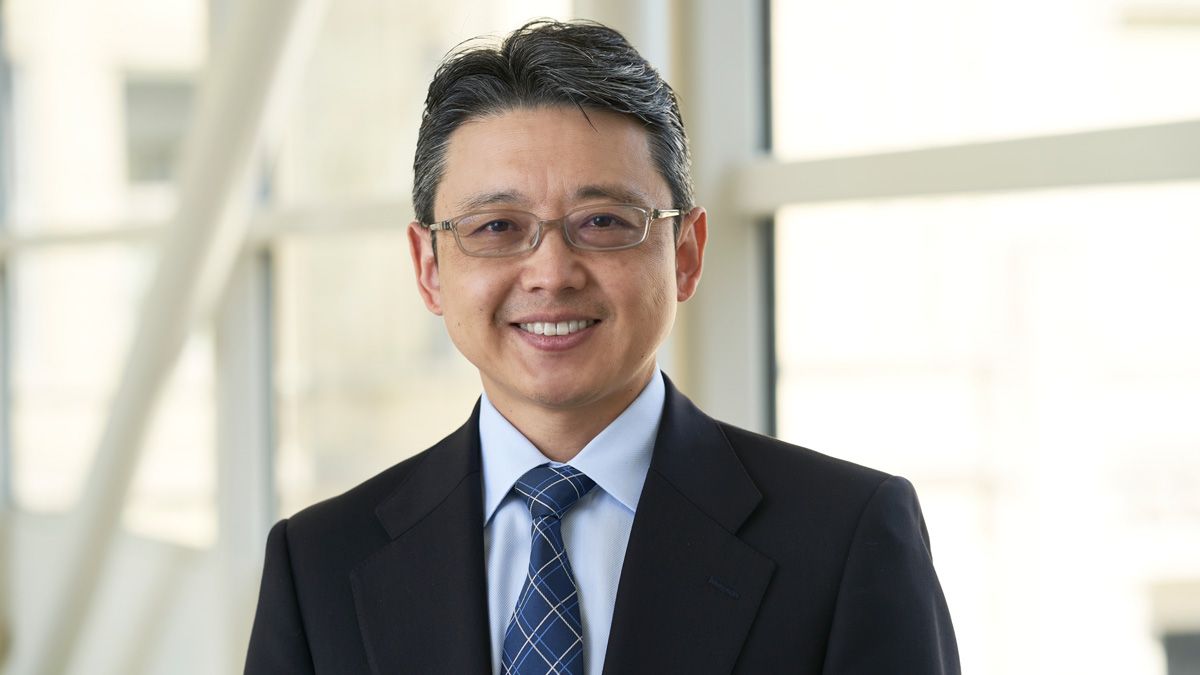Dr. Fumito Ito to highlight results of clinical trial in session at AACR Virtual Annual Meeting II
- There is no good way to know which patients will benefit from anti-PD-1 drugs
- Roswell Park team found a promising biomarker that can be measured in blood
- New study confirms: Levels of CX3CR1 accurately predict response to treatment
BUFFALO, N.Y. — While immune checkpoint inhibitors have driven dramatic improvements in survival for patients with many cancer types over the last decade, there is still much to be learned about the most effective use of these immunotherapies. Particularly in patients with non-small cell lung cancer, or NSCLC, responses to this class of drugs are widely varied, and the need for a predictive metric that could distinguish those patients who are good candidates for these drugs from those they are not likely to benefit is a pressing priority for oncology research.
In a talk to be presented online as part of the American Association for Cancer Research (AACR) Virtual Annual Meeting II, Fumito Ito, MD, PhD, FACS, of Roswell Park Comprehensive Cancer Center will highlight new evidence that such a predictive biomarker exists and can be detected through a blood test — measurement of the levels of the chemokine receptor CX3CR1 in patients’ immune cells, specifically T lymphocytes.
Dr. Ito will share the results of the first clinical trial assessing this candidate biomarker as a way to predict response to therapies that target the checkpoint protein PD-1 — the checkpoint inhibitors nivolumab (Opdivo) and pembrolizumab (Keytruda).
“Our results confirmed that CX3CR1 was found to be a highly accurate predictive biomarker of response for patients with non-small cell lung cancer who are treated with anti-PD-1 therapy,” says Dr. Ito, Associate Professor of Surgical Oncology and a member of the Center for Immunotherapy at Roswell Park.
“While further studies are in order before this strategy is employed more widely, our approach has the potential to minimize unnecessary treatment, treatment toxicity and associated cost, and may help to guide treatment decisions not only for people with NSCLC but those with several other advanced and metastatic cancers as well.”
The clinical study was funded in part by donations to Roswell Park and by a grant from the U.S. Department of Defense.
Dr. Ito will highlight the study, Abstract 1044, in a talk to be presented in an online session today, June 24, 2020, at 9:20 a.m. EDT as part of the AACR’s Virtual Annual Meeting II, access to which is free. Meeting registration information is available here.
###
Roswell Park Comprehensive Cancer Center is a community united by the drive to eliminate cancer’s grip on humanity by unlocking its secrets through personalized approaches and unleashing the healing power of hope. Founded by Dr. Roswell Park in 1898, it is the only National Cancer Institute-designated comprehensive cancer center in Upstate New York. Learn more at www.roswellpark.org, or contact us at 1-800-ROSWELL (1-800-767-9355) or ASKRoswell@RoswellPark.org.
Annie Deck-Miller, Senior Media Relations Manager
716-845-8593; annie.deck-miller@roswellpark.org
